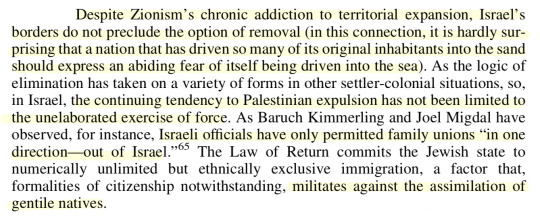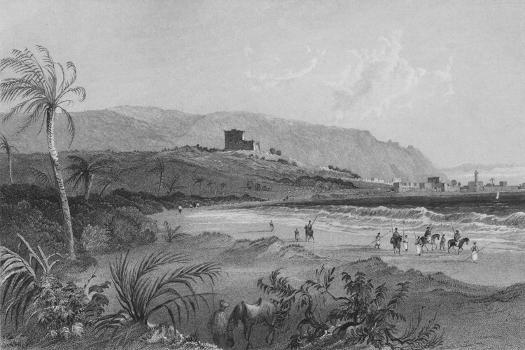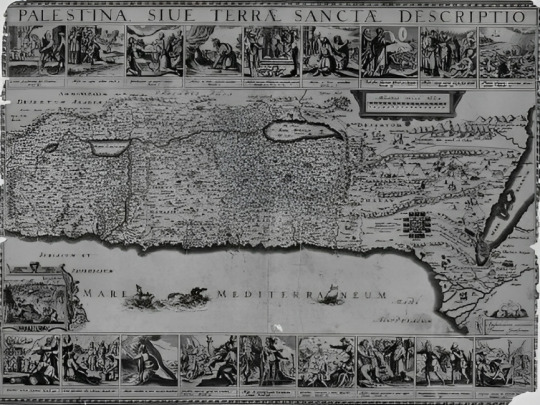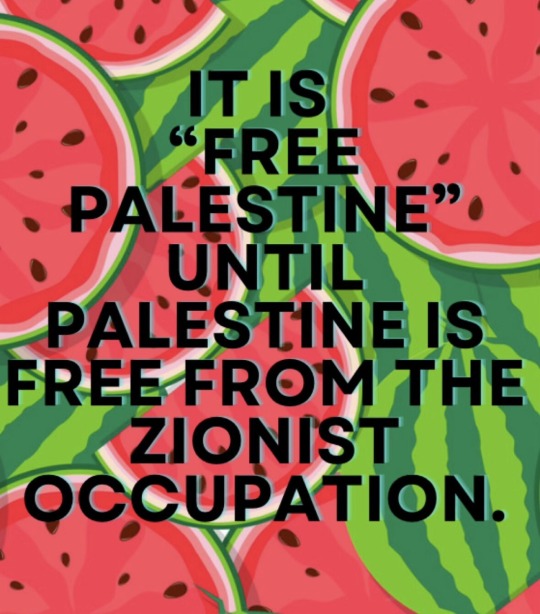#settler colonialism and the elimination of the native
Text

settler colonialism and the elimination of the native, patrick wolfe
#hard to explain the evil of zionism as a nationbuilding project but this article is a good start#settler colonialism and the elimination of the native#patrick wolfe#article#settler colonialism and genocide#j#words
19 notes
·
View notes
Note
https://www.tumblr.com/beigale-shtuchim/749006144592379904?source=share
https://www.tumblr.com/the-catboy-minyan/749015310244446208?source=share
This whole thread is shit tbqh as per usual with smol bean zionists but I wanted to take the opportunity to know your opinion as an open anti-zionist jewish person abt the point near the end of the og chain:
Is it true that at some point in history jews are/were indigenous to the same land without that inherently denying Palestinian roots? Also wtf do they mean with "The Arab Empire" colonizing Palestine???
These are all gen doubts btw you're cool with cool opinions so that's why I'm asking lul
its true that jews lived in eretz yisrael, the geographic land of biblical israel, until the destruction of the second temple around 2000 years ago (and not all of them, even before this there were jews living in various other places) but this really has nothing to do with claims of being indigenous today. the concept of indigeniety is specifically in relation to colonization and modern colonialism. the history of movements of people and the collapse of ancient empires, tribes, kingdoms is really complicated and long, and in palestine in particular there were a lot of different periods of rule and different religious groups living there. i dont really study ancient history or biblical history but there is a lot you can read on it. its not denying palestinian roots to say this because who lived where thousands of years ago and the religious significance of a geographic location doesnt change the settler colonial nature of the modern nation state of israel. its a purposeful misunderstanding of modern colonialism when zionists say this, and ignorance of the academic work that shows israel operates like other settler colonies, and that the basis for something being settler colonial is actually material in terms of the aims, government structure, land policy, displacement and dispossession, justifications for colonization, and economic relations between colonizers and colonized, not religion or ancient history. this article Settler Colonialism and the Elimination of the Native is pretty good
and zionists also are probably referring to ancient islamic empires when they talk about arab colonization, which again is really not the same thing as modern colonialism
theres a few posts in my tag for resources and for anti zionism that have links of books about this
also decolonizepalestine.com
155 notes
·
View notes
Quote
Settler colonialism generates conflict between the colonist usurpers and the Indigenous population. No population is willingly displaced. But if a conflict involves two or more “sides” fighting over differing interests or agendas, then a colonial struggle is not a “conflict.” Colonialism is unilateral. One powerful actor invades another people’s territory to either exploit it or take it over. There is no symmetry of power or responsibility. The Natives did not choose the fight. They had no bone to pick with the settlers before they arrived. The Indigenous were not organized or equipped for such a struggle, and they had little chance of winning, of pushing the settlers out of their country. The Natives are the victims, not the other “side.” Nor, to be honest, are they a “side” at all in the eyes of their conquerors. At best they are irrelevant, a nuisance on the path of the settler’s seizure of their country, an expendable population, one that must be “eliminated,” if not physically annihilated then at least reduced to marginal presence in which they are unable to conduct a national life and thus threaten the settler enterprise. Such a process of unilateral, asymmetrical invasion that provokes resistance on the part of Native peoples threatened with displacement and worse can hardly be called a “conflict.” Rather than the “Israeli/Palestinian/Arab Conflict,” we must speak of Zionist settler colonialism.
Jeff Halper, Decolonizing Israel, Liberating Palestine: Zionism, Settler Colonialism, and the Case for One Democratic State
1K notes
·
View notes
Text
Yes, America contains many medieval and premedieval archeological sites from native Americans for hundreds of thousands of years, but unlike in Europe there is no continuity between the ancient and the new settlements. The indigenous peoples of America have either been genocided or forcibly removed from their ancestral land, and the settler majority have constructed their settlements in new places suited to them, or if not they have utterly annihilated the material culture of the indigenous peoples that were there before. This means that unlike in Europe, there is no mix, no co-existence of the historic and the contemporary.
In my village I would walk through modern housing, to a medieval Church with early medieval runestones marking the entrance, past iron age graves, stopping by a 17th century farmhouse that's still lived in on the way. In the city where I went to school the cathedral from 1246 dominates the skyline; it's your reference point for where you are everywhere in the city. This kind of co-existence with history cannot happen in America because it's a settler colony. Sarcastically reblogging indigenous archeological sites as an own completely ignores that these sites in fact belong to cultures that have been suppressed or eliminated by the dominant culture and what this means.
Every city in America is Croy, or Livingston. It's a miserable place.
#this is also what I think the OP of that post means#it's certainly why I feel very weird in america
584 notes
·
View notes
Text
Israeli-Palestinian Discourse






click to download
When does a native become a settler? by Yuval Evri, Hagar Kotef
Settler Colonialism and the Elimination of the Native by Patrick Wolfe
The Question of Palestine by Edward Said
Zionist Colonialism in Palestine (1965) by Fayez Sayegh
The Ethnic Cleansing of Palestine by Ilan Pappe
Fateful Triangle: The United States, Israel, and the Palestinians by Noam Chomsky
Zionism and Colonialism by Gershon Shafir
Traces of History: Elementary Structures of Race by Patrick Wolfe
The Palestinians’ Inalienable Right to Resist by Louis Allday
On Palestine By Noam Chomsky, Ilan Pappe and Frank Barat

Read About Palestine // Quotes
Artworks: Bethlehem Street Scene Photograph No.1 - Bethlehem, Palestine by Lantern Press // Approach to Caipha, Bay of Acre, Coast of Palestine by William Henry Bartlett // Fountain of the Virgin, Nazareth, Palestine, C1927-C1931 // Tower of the Forty Martyrs, Ramla, Palestine, C1930S by Ewing Galloway // Light Shining in Church of the Nativity Photograph No.2 - Bethlehem, Palestine by Lantern Press // The Market, Haifa, Palestine, C1920S-C1930S // Holyland Land Palestine - 1650
@liriostigre
#book recs#palestine#israel#middle east#nonfiction#settler colonialism#decolonisation#dark academia#refugees#gaza#history#books & libraries#light academia#book reccs#books and libraries#books and reading#artwork#resistance#illustration#current events#reading#booklr#book list#to read
290 notes
·
View notes
Text
The statements that both [U.S. President Barack] Obama and [President of Israel Shimon] Peres are “very good gardeners” are haunting. They reveal the ongoing transformation of indigenous landscapes due to the persistent structures of settler colonialism in the United States and Israel. In both the United States and Israel, the Europeanization of the landscape continues to be an intrinsic part of ongoing settler-colonialism; since the colonial encounter, Zionist and European colonizers interpreted the indigenous landscapes as physical manifestations of the abject native that had to be vanished and replaced. [...]
In Palestine, “good gardening” practices by Israeli and Zionist organizations have contributed to a process I call “eco-occupation”—through the planting of nonnative trees to resemble European landscapes and the appropriation of the natural habitat to expand colonial settlement, Israeli settler colonialism is produced through an intricate, systematic process of environmental transformation, replacement, and disappearance. Here, “eco” refers to the social, political, ideological, and material landscapes that fix Palestinian life to land; “occupation” refers to the militarized, settler- colonial presence of Israel in the occupied Palestinian territory of the West Bank as well as the mundane and seemingly benign practices of settler colonialism, including “good gardening” practices that promise to make a feminized wilderness more aptly penetrable for colonial development and expansion.
Indeed, the image of Obama and Peres as “good gardeners” invokes the origin story of a barren landscape that was made fertile by the productive external forces of European Zionists. In effect, this narrative epistemologically disappears native peoples from the land. There is no mention that, for example, the very site of the presidential complex where Obama planted his friendship seed [a magnolia sapling descended from a tree on the White House's lawn] once housed a thriving Christian Palestinian community where Palestinian postcolonial theorist Edward Said—among others—once called home.
These omissions point to the various cultural, epistemological, and material forms of disappearing native peoples. Indigenous bodies, memories, and lands are but a blip in a colonial history imagined as complete, coherent, and natural. [...] Vanishment refers to the processes of erasure that rely on the appropriation of the earth’s elements, the removal and replacement of native landscapes, and the erasure of indigenous culture through a system of conditional inclusion. Palestinian lands, particularly the olive tree, figure into the process of eliminating what was deemed to be a characteristically Palestinian landscape—that is, a racially abject and soiled environment in need of colonial modernity’s raking and raping.
— Lila Sharif, "Vanishing Palestine." Critical Ethnic Studies 2.1 (Spring 2016), pp. 17-39; pp. 17-8. DOI:10.5749/jcritethnstud.2.1.0017.
86 notes
·
View notes
Text
"A colonialist understanding of the country’s desolation before the arrival of the Zionist settlers has been invoked by countless Zionist statesmen and scholars. ... It reiterates the conventional colonial narrative – used in relation to Algeria, Australia, Western Africa, South-East Asia and the homelands of indigenous nations in the United States – to suggest that White colonists benevolently tame the wild environment and its barbarian inhabitants through the application of science and technology. In line with this myth, Zionist settlers were instructed, even before their arrival, that they were the rightful owners of the land. This made their violence against the indigenous population unavoidable.
... In the light of this perception, peace treaties or proposals for peaceful coexistence between colonizers and indigenous populations – whether Tasmanian, Māori, Algerian, Native American Nations, or Palestinian – turned out to be nothing more than fresh strategies to make their elimination possible. In the case of Palestine, the Arab Bureau of the Jewish Agency maintained informal relations with some ‘moderate’ Palestinian leaders before 1948, not to explore ways to achieve understanding, but to gather intelligence and ‘maneuver to split Arab ranks’."
Ahmad H. Sa'di, "Towards a Decolonization of Palestine Studies," in Decolonizing the Study of Palestine: Indigenous Perspectives and Settler Colonialism (2023)
34 notes
·
View notes
Text
[“… in the case of the United States, settler colonialism was more than a colonial structure that developed and replicated itself over time in the 170 years of British colonization in North America preceding the founding of the United States. The founders were not an oppressed, colonized people. They were British citizens being restrained by the monarch from expanding the thirteen colonies to enrich themselves. They were imperialists who visualized the conquest of the continent and gaining access to the Pacific and China. Achieving that goal required land, wealth, and settler participation. They devised a unique plan, manifest in the 1787 Northwest Ordinance, which was created during the War of Independence by the Continental Congress and reenacted at independence by the US Congress in 1789.
Designed as what historian Howard Lamar called “an internal colonial system for the West,” its provisions were borrowed in part from the British system of settler colonialism in Ulster, Ireland, and the thirteen North American colonies. However, this invention was something new, the constitutional construction of the fiscal-military settler state, with both ethnic cleansing of the Native presence and chattel slavery producing racial capitalism.
The Northwest Ordinance provided for eventual settler self-government once European American settlers outnumbered the Indigenous population. This land act guaranteed to the settlers property, civil rights, religious freedom, trial by jury, representational legislation, and public education. That ultimate conclusion, however, was preceded by successive stages of colonial development, from military ethnic cleansing and control to a federally appointed territorial government to a semi-representational government to, finally, admission into the United States as a state. This constituted a unit of the fiscal-military nation-state. Lamar observes that apologists for US expansionism do not see the ordinance as a reflection of colonialism but rather as a means of “reconciling the problem of liberty with the problem of empire.”
The founders were unapologetic imperialists, chips off the old block of British imperialism, but with the added conceit of an “empire for liberty,” as Thomas Jefferson conceived the future. Historian David Reynolds writes that Jefferson believed the US empire was destined to assume the responsibility to spread freedom around the world, starting with the North American continent and intervening abroad. US foreign policy was stamped with this concept and has provided the ideological motivation for all US wars and interventions.
Through the Northwest Ordinance, the United States created a unique land system among colonial powers, including Britain. In the US system, land itself—not just what was produced from the land, such as agriculture, mining, logging, grazing, and so on—was the most important exchange commodity for the accumulation of capital and building the national treasury. In order to comprehend the apparently irrational genocidal policy of the US government toward the presence of Native nations on the land, the centrality of land sales in building the economic base of the US capitalist system must be the frame of reference. This policy was embedded in the design of the fiscal-military state. As Wolfe summed up the issue, “Tribal land was tribally owned—tribes and private property did not mix. Indians were the original communist menace. . . . Whatever settlers may say—and they generally have a lot to say—the primary motive for elimination is not race (or religion, ethnicity, grade of civilization, etc.) but access to territory. Territoriality is settler colonialism’s specific, irreducible element.”]
roxanne dunbar-ortiz, from not a nation of immigrants: settler colonialism, white supremacy, and a history of erasure and exclusion, 2021
75 notes
·
View notes
Text
“Settler colonialism, which is what this is, is by far the worst kind of imperialism, because it gets rid of the native population. Other kinds of imperialism exploit them, but settler colonialism eliminates them, “exterminates” them, to use the words of the Founding Fathers.”
― Noam Chomsky, Power Systems: Conversations on Global Democratic Uprisings and the New Challenges to U.S. Empire
66 notes
·
View notes
Text

settler colonialism and the elimination of the native, patrick wolfe
#settler colonialism and the elimination of the native#patrick wolfe#settler colonialism and genocide#words#j
7 notes
·
View notes
Text
i read this article a while ago for a class and it was good. its a complex distinction he making about different aspects of settler colonialism and what ties settler colonies together. specifically what he calls 'elimination of the native' where while destroying native society settlers still incorporate indigenous aspects into the settler society to legitimize it. just wanted to add this quote:
As Deborah Bird Rose has pointed out, to get in the way of settler colonization, all the native has to do is stay at home.
96 notes
·
View notes
Text
When we speak of Israel as a settler colony, we refer to a very specific phenomenon. Settler colonialism differs from classic colonialism, in that settler colonialism only initially and temporarily relies on an empire for their existence. In many situations, the colonists aren’t even from the empire supporting them, and end up fighting the very sponsor that ensured their survival in the first place. Another difference is that settlers are not merely interested in the resources of these new lands, but also in the lands themselves, and to carve out a new homeland for themselves in the area.
The obvious issue here is that these lands were already inhabited by other people before their arrival.
This is when the settler “logic of elimination” comes into play. Coined by scholar Patrick Wolfe, this means that the settlers needed to develop not only moral justifications for the removal of the natives, but also the practical means to ensure its success. This could take the form of ethnic cleansing, genocide or other gruesome tools of ethnocide.
If you’re at all familiar with Zionist talking points, you can see this logic of elimination in motion. “A land without a people for a people without a land“, “there is no such thing as a Palestinian“, “Israel made the desert bloom” and many other talking points illustrate this perfectly. For example, you can immediately see how denying the existence of Palestinians resembles the Terra Nullius argument used by colonists all over the world. All of these talking points are aimed at justifying the dispossession of the Palestinians and legitimizing Zionist claims to the land they wished to colonize. As for the practical means to remove the natives, the Nakba remains a testimony to such crimes.
The claim that Zionism is merely Jewish self-determination also conflates the Jewish people with Zionism, an ideology finding its origins in Europe in the late 1800s. At the time, the Jewish people were largely uninterested in Zionism. As a matter of fact many Jewish groups were fiercely anti-Zionist. The attempt to conflate the two is an attempt to give legitimacy to self-professed settlers from Europe, and portray any criticism of the Zionist project as inherently antisemitic.
281 notes
·
View notes
Text
The founder of settler colonial theory, Patrick Wolfe, treated Palestine as a paradigmatic example of settler colonialism.
From his 2006 piece "Settler Colonialism and the Elimination of the Native":

13 notes
·
View notes
Text
From the beginning, the Zionist “redemption of the land” was associated with the so-called “revival of Hebrew” (Saposnik, 2010), with “Hebrew” being used in relation to a range of issues beyond the tongue one speaks. Hebrew became a marker of nationality, with references to ideas such as the “Hebrew nation”; it became (as part of this mark of nationality) the idiom organizing economic relations, particularly in the Zionist campaign for “Hebrew labor” (Avoda Ivrit) that was, in fact, a call to boycott Arab workers in the Jewish colonies (see Khalidi, 1997; Shafir, 1989); and it played a role in transforming space and reclaiming Jewish ownership while negating the indigenes’ claims to the land, via toponymic changes (replacing Arabic with Hebrew names) and remapping projects, which are at the core of settler colonial movements (Abu El Haj, 2001; Benvenisti, 2002; Masalha, 2007). On all these different levels, “Hebrew” was the mark and tool of the de-Arabization of the land.
In addition, language helped in shaping the racial contours of the land's inhabitants. After being one of the basic elements in the orientalization of Jews in Europe through the creation of the “Semite” as a linguistic-racial category (Anidjar, 2007), language (this time Hebrew, rather than “Semitic” languages) became one of the key elements in the de-orientalizing of the Jew: Hebrew was able to “return” to the east, to become the language of the land (Palestine), only after it was reconstructed as a European language, dissociated from its oriental and Semitic origins. Rather than being conceived as an indigenous language rooted in the historic and contemporary East—a relative, as it were, of Arabic—Hebrew thus became part of the westernization of the land.
The demand to speak Hebrew was, accordingly, entangled with the demand to abandon, simultaneously and relatedly, Arabic and (Arab) native-ness. The Arab-Jews were caught up in this effort to eliminate Arabic as part of an effort to displace Arabs. Arabic, their own language, was gradually labeled a foreign language, and then the language of the enemy.
When does a native become a settler? by Yuval Evri, Hagar Kotef, 15 June 2020
#palestine#hebrew#arabic#settler colonialism#middle east#essay#dark academia#history#spilled ink#light academia#words words words#books and reading#spilled thoughts#books & libraries#jews#anti zionisim
69 notes
·
View notes
Text
[anon]
I feel like there's a recurring pattern of discourse from people who have some idea that the left establishment is fucked up but don't want to admit how deeply unsalvageable it is, where they blame the motte-and-bailey-ing on academics being bad at communicating and using obscure field-specific jargon in inflammatory public contexts where people don't have the background to understand them, but then you actually check what the obscure field-specific jargon is and where it came from and what it means and it's always some shit like "'Slaughtering the white children' is a sociology concept introduced by scholar Joan de Cia in her 1978 essay We Must Slaughter The White Children. In the essay, de Cia describes 'the white children' as a symbol for the vain hopes of capital, and states that if a classless society is ever to be achieved, these hopes must be destroyed by means of violence."
Ah, you mean like that time a local non-insane leftist wonk read through "Decolonization is not a metaphor" and discovered the line "decolonization is not accountable to [...] settler futurity"?:

Which, well...
The surface reading of the term "decolonize" is that the entire "settler" population fucks off and leaves the continent, taking all their equipment and buildings with them and rolling the entire geographic area back to the year 1491.
Which sounds a lot like...
Breaking the settler colonial triad, in direct terms, means repatriating land to sovereign Native tribes and nations, abolition of slavery in its contemporary forms, and the dismantling of the imperial metropole.
[...]
For social justice movements, like Occupy, to truly aspire to decolonization nonmetaphorically, they would impoverish, not enrich, the 99%+ settler population of United States. Decolonization eliminates settler property rights and settler sovereignty. It requires the abolition of land as property and upholds the sovereignty of Native land and people.
afloweroutofstone found no more concrete description of what "decolonization" is supposed to entail.
Terms like "eliminate whiteness" and "spirit-murdering" are almost certainly no different. It's doubtful there's any proposed definition of "spirit-murdering" concrete enough to rule someone "not-guilty."
If the surface reading is extremely hostile, and the "technical" reading is a bunch of vague gibberish, it should be assumed that the speaker is intentionally choosing to be extremely hostile, especially among left-wingers who are highly focused on "harmful" language.
afloweroutofstone, like max1461, has to treat the subject with kid gloves. Noting that "Decolonization is not a metaphor" is like this is a way for him to slowly walk the insane people in his movement away from * checks notes * indigenous irredentism explicitly completely unconcerned with the fallout that might have on the vast majority of the population, and not get deplatformed by the insane ideological vanguard.
Many sane leftists are essentially followed by Nazis. Rightists are too, of course, it's just that it's often presented as only Rightists.
Some of these guys probably don't really believe in this and are just trying to push the overton window, but it should be noted that a number of right-wing Twitter users claim that they weren't right-wing 10 years ago. (I think that's credible because *I* wasn't as right-wing 10 years ago.)
Others are likely just social consensus followers that are allergic to like, math, or other elements of trying to synthesize a concrete policy.
112 notes
·
View notes
Text

🍉 … Zionist movement — colonial project!!
ISRAEL …
By: LaillaB, founder of ‘Reclaim the Narrative’, from LinkedIn …
“Througout the past century, the Zionist movement constructed the most sophisticated settler-colonial project of our age: Israel.
The violent birth of Israel in 1948 and the subsequent occupation of the entirety of the land of Palestine in 1967 are indeed reflections of Zionism's successes in fulfilling its settler-colonial ambitions in Palestine.
Yet, while this settler-colonial project continues unabated, it is an entangled one, unable to reach the ultimate point of Jewish exclusivity in the land.
Zionist settler colonialism, as its historical precedents suggest, is fundamentally based on the operative logic of "eliminating the native".
The steadfast Palestinian presence in the land, the everyday resistance to the colonial order, and the robust Palestinian adherence to their rights all stand as structural obstacles to the ultimate realisation of the "Zionist dream."
Despite Israel's relentless colonial power and domination, Palestinian steadfastness means that this project will remain impeded and incomplete, a matter that may lead to its future demise 🕊 إن شاء الله
A Thief. Never became an owner.
📣 — It is FREE PALESTINE, until Palestine is free from the Zionist occupation.” … 🍉#
#DecolonizePalestine … #FreePalestine …
#reclaimthenarrative 🍉
#dr rex equality news information education#graphic source#graphic#graphics#hortyrex ©#horty#quote#it is what it is#gaza genocide#gazaunderattack#free gaza#palestine#colony#colonialism#land grab
6 notes
·
View notes